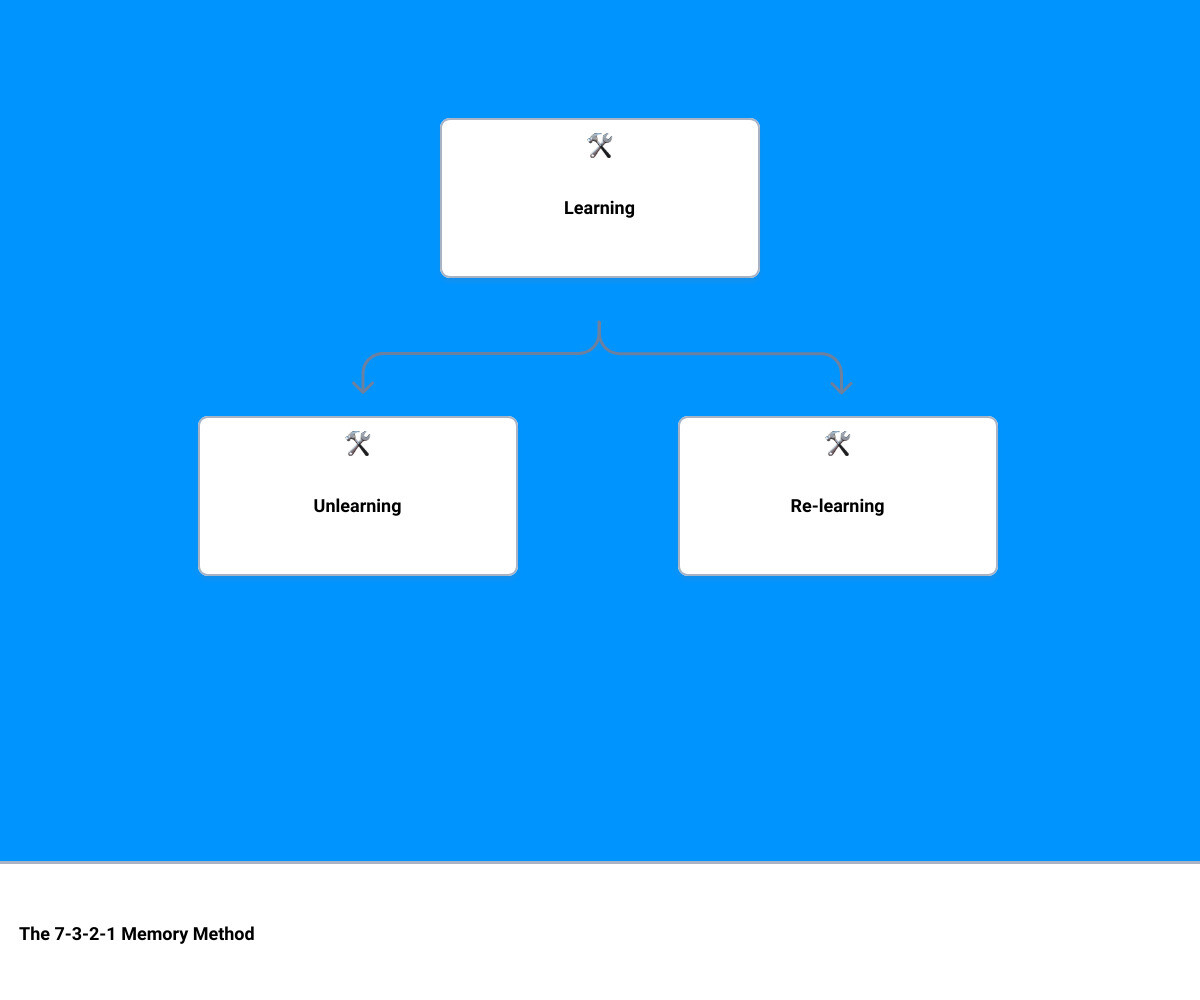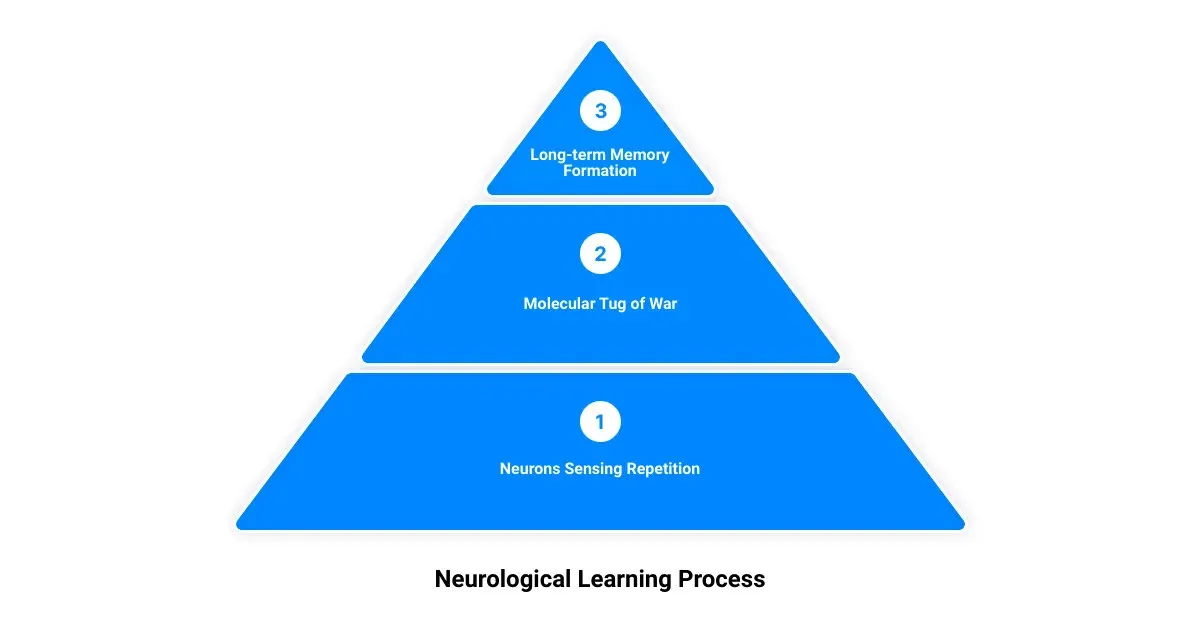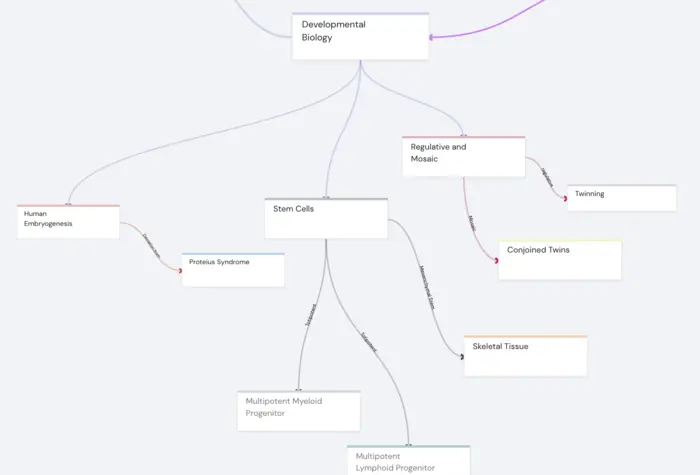If you've ever felt the frustration of forgetting a newly learned concept or found yourself struggling to recall vital information, you're not alone. Memory retention is a common challenge faced by learners worldwide. But what if there was a proven, scientific method to boost your memory retention? A method that can help you conquer Mandarin, memorize complex Chinese characters, or master any topic of your choice? Enter the world of repetition memory.
In this article, 'Mastering the Art of Recollection: Unveiling the Secrets to Enhanced Memory Retention', we'll delve into the cognitive science behind effective learning. We will explore the power of repetition in memory retention and how you can harness it to become a more efficient learner.
Repetition, simply put, is the act of repeating something - be it a word, a concept, or a skill. In the context of learning, repetition is often considered a cornerstone for memorization. But, as we will uncover, it's not just about mindlessly repeating information. It's about understanding when and how to repeat information to embed it into our long-term memory more effectively.
Whether you're endeavoring to learn Mandarin, mastering Chinese characters, or simply looking to enhance your learning efficiency, understanding the science of repetition memory is key. So, let's unravel the mysteries of this powerful learning tool together.
Understanding the Basics of Memory Formation
The key to unlocking the power of repetition memory lies in understanding the foundation of how memory is formed. Our brain, a masterful organ, works in a complex yet fascinating way to encode, store, and retrieve information. This process not only enables us to remember things but also plays a crucial role in our learning journey.
The Role of the Brain in Memory Encoding
Memory encoding is the first step in the creation of a memory. It's where the brain transforms information into a form that can be stored and later retrieved. This intricate process involves routing the incoming information through the amygdala, our emotional memory storage center, or the hippocampus-cortex, our primary memory storage center. The efficiency of encoding is influenced by a variety of factors, including the type of material to be encoded, environmental conditions, and even subjective factors like fatigue and motivation.
The Journey from Short-term to Long-term Memory
Once the information is encoded, it temporarily resides in our short-term or 'working' memory. Think of it like a mental whiteboard where you scribble down phone numbers or directions. However, this memory space is limited and only lasts for minutes. For information to be retained longer, it needs to leap from short-term memory to long-term memory. This shift is critical for learning, as long-term memory can last for days, weeks, years, or even a lifetime.
But how does this information make the leap? The answer lies in three mechanisms—urgency, repetition, and association.
The Impact of Urgency, Repetition, and Association on Memory
Each of these mechanisms influences memory formation in unique ways. Urgency, often triggered by a release of stress hormones, can create potent and enduring memories. For example, a single exposure to a threat can etch a memory on the amygdala that lasts a lifetime. However, this form of memory encoding often leaves an emotional marker rather than a narrative one, leading to recall difficulties.
Repetition, on the other hand, is a tool we're all familiar with. By repeating information—like practicing piano scales or reciting multiplication tables—we create strong chemical interactions at the synapses (connection points) of our neurons. This process reinforces the neural pathways associated with that information, making it more likely to be stored in long-term memory. That's why most learning, both implicit (like tying your shoes) and explicit (like multiplication tables), relies heavily on repetition.
Finally, association works by linking new information to an existing neural connection. If the new learning finds an already established 'file folder' in your brain, it's easier to remember. Like when a random string of ten digits becomes effortlessly memorable when you realize it's your phone number.
Understanding these fundamentals of memory formation—encoding, the transition from short-term to long-term memory, and the impact of urgency, repetition, and association—will serve as a critical foundation as we delve deeper into the art of repetition memory.
The Science Behind Repetition and Memory
Unraveling the mysteries of the mind, we now delve into the fascinating world of the science behind repetition and memory. This journey takes us to the heart of the neurological process involved in long-term memory formation, the role of neurons in discerning repetition and order, and the intricate molecular "tug of war" that facilitates memory creation.
The Neurological Learning Process Involved in Long-term Memory
Learning is not just a matter of repetition; it's an elaborate neurological process that transforms fleeting experiences into lasting memories. For instance, when studying Mandarin, repeating a phrase or a character enhances memory retention, but there's more to it. According to a study led by NYU neuroscientist Nikolay V. Kukushkin, the brain's machinery is more complex than mere repetition. Neurons can sense not only the repetition but also the order of repeated experiences, using that information to distinguish between different patterns of these events in making memories. This complex process is one of the reasons why learning a new language like Mandarin can be challenging but also highly rewarding.
The Role of Neurons in Sensing Repetition and Order
Repetition is a fundamental trigger for memory formation, but the interaction and order of repeated events play a crucial role in the creation of long-term memories. Neurons can differentiate between two events in escalating order of intensity and the same two events in reverse order. Consequently, forming a memory only happens if the intensity rises over time.
For instance, while learning Mandarin, the neurons can sense the order of learning different strokes, tones, and characters, and use this information to form memories. This capability of neurons to discern the order of repeated experiences is a key component in the effective learning and remembering of complex subjects like Mandarin.
The "Tug of War" Between Molecules in Memory Formation
The formation of long-term memory involves a fascinating molecular "tug of war." The protein ERK, which plays an essential role in memory, doesn't simply build up during the learning process. Instead, there's a delicate balance between molecules that activate ERK, favoring memory, and those that deactivate it, opposing memory.
Interestingly, after a single learning event, the deactivating side tends to win, halting ERK activity and preventing memory formation. However, a second event is needed to counteract this decrease in ERK activity, enabling memories to solidify.
In essence, the science of repetition and memory is a dynamic interplay of neurological processes, neuron activities, and molecular balances. Understanding these scientific principles is pivotal in mastering the art of recollection, especially when embarking on the challenging yet rewarding journey of learning Mandarin.
The Art of Effective Repetition for Enhanced Memory Retention
Harnessing the power of repetition is a skill that can transform your learning journey, especially when it comes to mastering Mandarin. While it's clear that repetition has a profound impact on memory, the key lies in how you use it. Let's delve into the art of effective repetition and pinpoint the strategies that lead to enhanced memory retention.
The Importance of Processing Information During Repetition
Successful memorization is not just about repeating information; it's about fully processing it each time you do. If you're aiming to memorize a list of Mandarin characters, for instance, simply saying or writing them over and over again might not cut it. To unlock the full potential of repetition, you need to actively engage with the information you're trying to commit to memory. This could involve understanding its meaning, creating associations with other pieces of knowledge, or using it in a real-life context. In other words, the combination of repetition and meaningful connection can significantly improve your memory retention.
The Concept of Spaced Repetition for Improved Memory
Spaced repetition is a scientifically-backed technique designed to boost long-term memory retention. It's like a gym workout for your brain, but instead of lifting weights, you're repeating information at specific intervals. This method revolves around the concept of the "forgetting curve", which represents the rate at which we forget newly learned information. Revisiting the material just before you're about to forget it can reset this curve and strengthen your memory.
For instance, when learning new Mandarin words, you might start by repeating them several times in a row. Then, you would wait for a few hours or days before repeating them again. Each time you repeat the words, you would extend the interval before the next repetition. This way, you're keeping the information fresh in your mind and increasing the likelihood of long-term retention.
The Pitfalls of Mass Practice and Verbal Overshadowing
While repetition is powerful, it's also essential to avoid common pitfalls such as mass practice and verbal overshadowing. Mass practice involves repeating information several times in a row without a break, which can be effective for short-term memorization but can lead to information overload for long-term recall.
Verbal overshadowing, on the other hand, occurs when excessive repetition causes you to focus more on the words you're saying rather than their meaning, making it harder to recall the information later. As a Mandarin learner, this could mean struggling to remember the meaning of characters if you're overly focused on their pronunciation during repetition.
To avoid these pitfalls, strive for a balance between spaced repetition and massed practice while ensuring you're fully engaged with the information's meaning during repetition. After all, the art of effective repetition for enhanced memory retention is not just about repeating - it's about repeating wisely.

Practical Application of Repetition Memory Techniques
Have you ever wondered how you can apply the power of repetition to your memory retention efforts? Welcome to the practical side of repetition memory, where we'll unravel powerful techniques that can transform your learning process, including the 7-3-2-1 memory method, the role of repetition in learning, unlearning, and re-learning, and the impact of retention interval on memory recall.
The 7-3-2-1 Memory Method Explained
Imagine having a roadmap to long-term memory, a method that determines when and how often you should revisit information to ensure it sticks. That's exactly what the 7–3–2–1 method offers. It suggests a review pattern of 7 days, 3 days, 2 days, and today. If you've just learned something new that you want to remember long term, you should review it today (1), tomorrow (2), the day after tomorrow (3), and then on the 7th day from your first reading (7). This method taps into the power of spaced repetition, systematically increasing the intervals between reviews to maximize memory retention.
The Role of Repetition in Learning, Unlearning, and Re-learning
Repetition plays a crucial role not just in learning, but also in unlearning and relearning. Our brains are wired to recognize patterns and repetition, making this process vital in reinforcing neural pathways for new information. However, when we need to unlearn outdated or incorrect information, repetition is equally important. Regularly engaging with the correct information helps overwrite old neural pathways, facilitating the unlearning process.
Relearning, on the other hand, leverages the "Forget to Learn" theory. According to this concept, when retrieval strength drops, learning increases when we access the memory again. It's a sort of mental fitness, where the struggle to recall information strengthens the memory, making it easier to retrieve in the future.
The Impact of Retention Interval on Memory Recall
Retention interval, or the time between exposures to information, plays a critical role in memory recall. The idea here is to space out your repetitions, which has been shown to improve memory retention compared to cramming all repetitions into a short period. This is because giving your brain time to process and store the information helps create more robust memory traces.
In conclusion, repetition memory techniques offer a powerful way to enhance memory retention. But remember, it's not just about the number of repetitions—it's about the quality of those repetitions, the space between them, and your level of engagement with the information. So gear up and make every repetition count in your learning journey.

Leveraging Technology for Effective Repetition Memory: The Traverse App
In the digital age, technology has revolutionized the way we learn, making it easier and more efficient. One such technology is the Traverse app, a potent tool that integrates the science of repetition memory into a user-friendly platform.
The Unique Features of Traverse for Enhanced Learning
Traverse, a modern learning app, employs a multi-faceted approach to learning. It combines mind mapping, spaced repetition flashcards, and connected note-taking in one app, providing a comprehensive learning solution. Whether you're learning Mandarin or another complex topic, Traverse assists in building a deeper understanding of the subject matter.
The app's spaced repetition technique aids in embedding information into long-term memory. By systematically increasing the intervals between reviews of information, Traverse ensures that information is reviewed just at the point of forgetting, thereby strengthening memory recall.
Moreover, Traverse's mind mapping and connected note-taking features enhance understanding and retention. This enables learners to visualize how different pieces of information interlink, promoting a more holistic understanding.
The Benefits of Traverse for Mandarin Learners
For Mandarin learners, Traverse offers a unique blend of features designed to supercharge your learning efficiency. Unlocking Mandarin's complex characters becomes less daunting with Traverse's spaced repetition and mind mapping features. These tools can help you understand how characters connect to form phrases and sentences, making the learning process more engaging and fruitful.
Moreover, Traverse complements other language learning tools. For instance, coupling Traverse with Mandarin Blueprint, a comprehensive language learning course, can provide a structured path to mastering Mandarin. The fusion of Anki's efficient recall system with Traverse's connected note-taking can turn your Mandarin learning journey from daunting to doable.
Importing Anki Decks for Continued Learning with Traverse
One of the standout features of Traverse is the possibility to import your Anki decks. This means you can leverage the strengths of both platforms, creating a powerful learning ecosystem. The seamless integration eliminates the non-value-adding activity of scheduling reviews, freeing up more time for active learning.
In conclusion, the Traverse app is more than just a learning tool. It’s an ally in your journey to master complex subjects, encouraging efficient learning habits and leveraging the power of repetition to enhance memory retention. So, fire up the Traverse app and supercharge your learning journey today!
Conclusion: Mastering Memory Retention Through Repetition
In the canvas of cognitive science, repetition has painted itself as a cornerstone of effective learning and memory retention. Harnessing its power, however, is not about mindlessly repeating information but about the strategic application of the technique.
In the journey of knowledge acquisition, the role of the brain in memory encoding, the transition from short-term to long-term memory, and the impact of urgency, repetition and association on memory are all crucial elements, especially for Mandarin learners.
The science behind repetition and memory reveals how the neurological learning process and neurons play a part in memory formation. It also introduces a fascinating 'tug of war' between molecules during memory formation.
But how do we translate these scientific insights into practical strategies? The answer lies in effective repetition. Processing information during repetition, employing spaced repetition, and avoiding pitfalls such as mass practice and verbal overshadowing are all key factors in utilizing repetition for enhanced memory retention.
Practical repetition memory techniques, such as the 7-3-2-1 memory method, can further enhance memory recall. Additionally, understanding the impact of the retention interval is paramount in improving recall.
In today's digital age, we can leverage technology to improve our learning process. Traverse app stands out as an exceptional tool, especially for Mandarin learners. By importing Anki decks for continued learning, the app offers a unique blend of traditional and innovative learning methods.
Ultimately, mastering memory retention through repetition is about decoding the science, applying strategic techniques, and using the right tools. The journey might be challenging, but the results — a robust memory and efficient learning — are undeniably rewarding.
So, on your quest for knowledge, remember to pace yourself, allow time for the 'mental mortar' to dry, and revisit information at optimal intervals. And above all, keep in mind that the key to learning is not just in the acquisition of information but in the retention and recall of it. Armed with these insights, you're not just learning – you're remembering. And that's what learning is all about.

